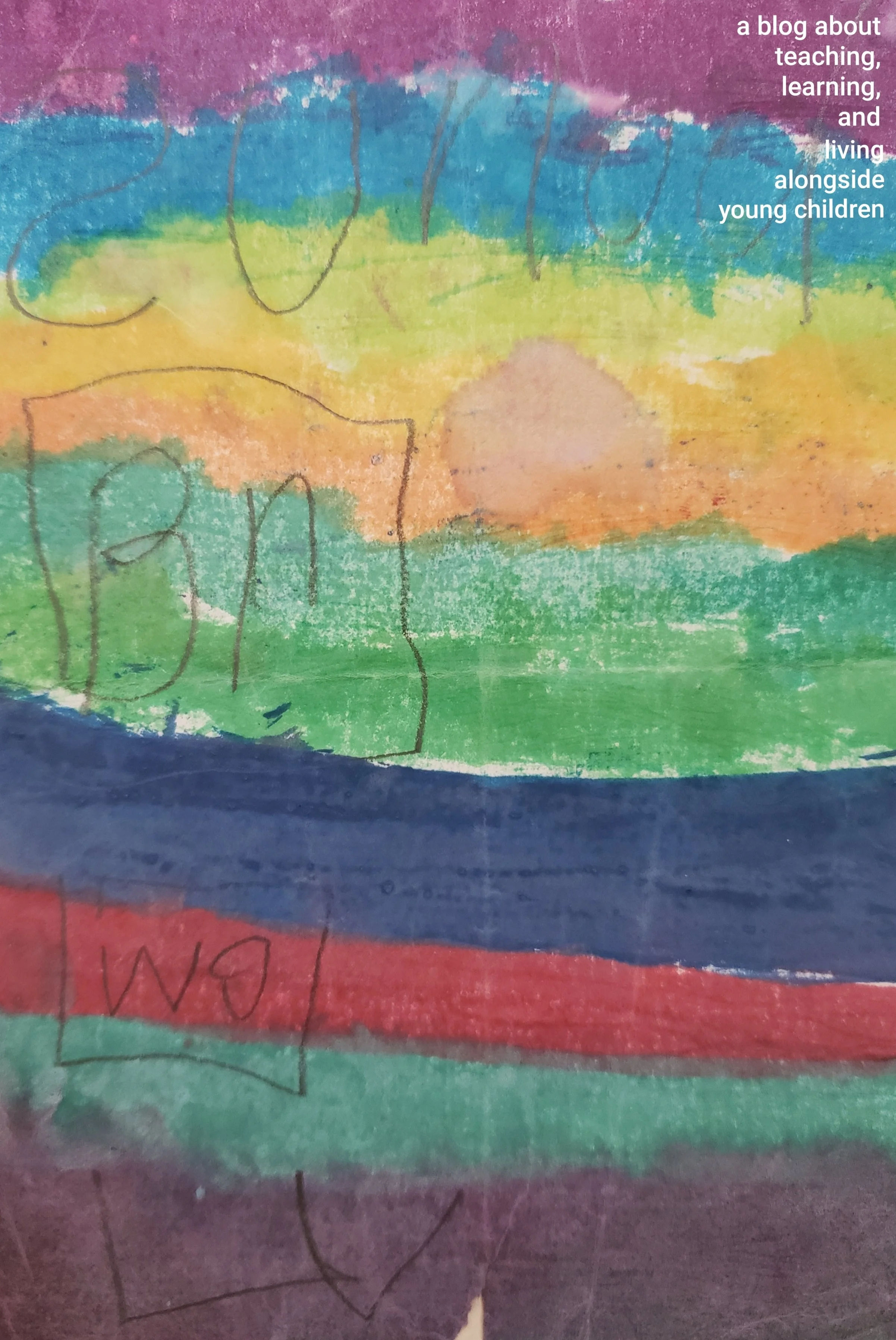What Does "Kindergarten Readiness" Really Mean?
/Illustrated by Beatrix R., age 6
Capital-K Kindergarten is a power word. It produces excitement, anxiety, nostalgia, and fear - a full range of human emotions in children and adults alike. The closer children get to the golden age of five, the more worried many parents become about the rite of passage their not-so-little children will soon be facing. They wonder: Will my child really be ready for kindergarten?
Let’s start by unpacking Kindergarten Readiness and think through some common Pre-K quandaries.
What does readiness really mean?
In general, and to get it out of the way, kindergarten readiness can refer to some basic motor skills, the ability to sit with a group for about 15 minutes, hold a pencil, etc., and some familiarity with academic concepts like letters and numeracy. Numeracy refers to the understanding that numbers represent sets of objects, not rote counting or memorization of numerals. Neither does your child really need to have memorized each letter sound, but rather have a sense of meaning and interest in the “secret code” of written language. Some schools will put more or less emphasis on wanting children to come in with these skills, but often families find these concepts will be covered all over again in the actual kinder class.
Rather than rote academics, your child will be better served and, dare I say, most ready if they arrive at kindergarten equipped with strong social-emotional and intellectual dispositions. At the basest level, your child will need to come into kindergarten knowing how to be away from home and participate in a school community. Your child will need to self-regulate, communicate, and cooperate with peers and adults alike. On a deeper level, your child will be best prepared if they can think critically about experiences and ideas in order to make meaningful connections - the heart of all learning. It’s the same reason numeracy is more fundamental than numbers: numbers don’t mean much if you don’t have anything to count. Memorizing facts doesn't mean much if you don’t have a way of connecting them to yourself or your environment. These are mindsets, habits of being, and skills that are supported and built through the daily practice of a quality preschool or care setting. Even better, these are things parents can support at home by being conscientious of their children as capable, thinking people. Including your child in the process of thinking about things in regular life is a powerful lesson in more than just cognition. Even when you ask your child something as simple as “Do you think this will be enough salad for dinner, or should we cut more vegetables?” you invite your child to participate meaningfully in practical life, think through variables, and bolster their confidence by valuing their input enough just to ask. Problem-solving and learning to be a community member will be an invaluable asset to any child entering kindergarten
Will the preschool teacher tell you if your child is not ready for kindergarten?
Yes and no (see what I did there?). A highly skilled preschool teacher will evaluate the children in their care based on who the child is as an individual and within their family, a loose developmental trajectory, and how the school environment and community impact their learning. Plus, families choose to go to certain kindergartens at certain times for many varied personal reasons that are far outside the teacher’s purview. So, rather than a simple “Yes, ready for kindergarten,” or “Nope, try again next year,” the teacher will more likely give anecdotal feedback about a child’s skills: “Micah loves to share her ideas in class meetings and is working on hearing others in order to further collaborate.” Statements like these give parents valuable insights into a child’s current interests, opportunities, and challenges alike. They don’t give a yes or no, but they give you vital insight into how your child will navigate the unavoidable reality of their next step. Parents can share relevant information with new teachers, caregivers, and family members in order to support the transition into a new school and, ultimately, a new time of life.
When is Transitional-Kindergarten or Developmental-Kindergarten the right choice?
T-Ks attached to public elementary schools, such as those recently implemented by the Los Angeles Unified School District, can also be a valuable resource for underserved families or families of children who have not attended school prior to kindergarten. In other cases, perhaps for “younger” 5s who barely make the age cutoff for kinder and may need more social support, a teacher might suggest an extra year of preschool as a way to scaffold a child’s learning with the more individualized care and higher adult to child ratio offered in preschool. This article published by Scholastic gives a great overview of the trend toward T-K and how relevant research and opinions differ. Whether it’s called another year of preschool, developmental kindergarten, or transitional kindergarten, the choice to go or not is a personal one parents make for various reasons (including the cost of care) -- all of which are valid.
Ultimately, “readiness” might mean something different for every child and family. What counts most is that we move through big transitions with openness, care, and a shared sense of curiosity about what the future has to teach us all.


